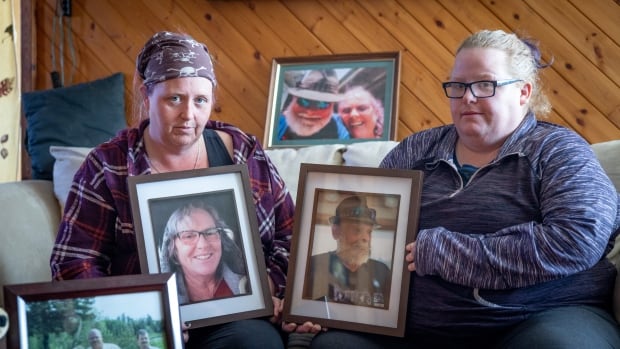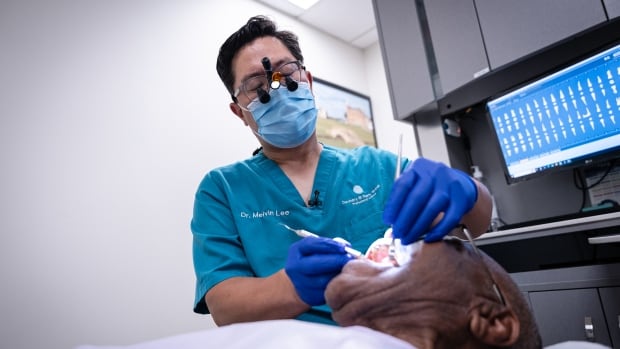Two sisters in southwest Nova Scotia still can’t quite believe how quickly they lost their parents, who died within a couple of hours of each other after contracting a rare infection.
Meta and Sammi Ross want people to know about the danger of invasive group A strep, or iGAS, a contagious bacterial infection that can progress rapidly.
Group A streptococcus is a family of bacteria that can cause common illnesses, such as strep throat.
But in rare cases, it can cause more serious infections by moving to the blood, lungs, muscles, bones, underneath the skin, or the fluid surrounding the brain and spinal cord.
“It just happened so fast and it was just such a shock,” said Sammi Ross.
Mother believed it was the flu
The sisters’ ailing mother, Ginny Killam, went to the doctor on Tuesday, Feb. 20, with symptoms she was told appeared to be flu-related, said Meta Ross.
However, the 59-year-old’s fever worsened and a rash on her body continued to spread. By Thursday, the Lower Woods Harbour woman was having trouble breathing.
“She was grey, like death,” recalled Meta Ross.
An ambulance was called and the sisters watched as their mom was taken away on a stretcher.
“She looked at me and she said, ‘I love you,'” said Sammi Ross. “And that was the last words I heard her say.”

Killam’s husband and the sisters’ stepfather, Jeffery Killam, fell ill the next day.
The 59-year-old man had underlying health conditions and was admitted to Yarmouth General Hospital after starting to vomit while in the waiting room.
Meta Ross got a call from Public Health later that evening saying Ginny Killiam had been diagnosed with invasive group A strep, and as a result, all close contacts would need to take a course of antibiotics.
Both parents died on Sunday, Feb. 25.
Family hadn’t heard about rising number of cases
The sisters said they believe their parents might still be alive if the infection was detected sooner in their mother and there was quicker action taken to treat their stepfather.
They are questioning why Public Health did not issue a widespread public notice in January after the first recorded death for 2024 from invasive group A strep. They and their parents might have reacted differently and pushed for tests had they known about the infections, said Meta Ross.

“I don’t think she thought of how serious her condition was getting,” Meta Ross said of her mother.
Nova Scotia Health said there have been 10 deaths among 39 cases of invasive group A strep between January and the end of February.
There were 16 cases during the same time frame last year and six deaths over the whole year.
Cases on the rise, but risk low: Public Health
Nova Scotia Health would not answer questions about individual cases due to patient confidentiality. However, it said the decision to release public notifications is made on a case-by-case basis and depends on the nature of the disease, how it is transmitted, and the level of risk to the public.
It has said the risk to the general public is low.
Still, health-care providers were alerted about the infections in January, said Dr. Ryan Sommers, the senior regional medical officer of health in Nova Scotia.
“We communicated with them to make sure that they are aware,” he said. “So when they’re seeing someone, just to keep it in mind.”
Sommers said more cases of group A strep appear during the respiratory season, and diagnoses have been on the rise since COVID-19 public health restrictions were relaxed. It is the same situation in other parts of Canada, he said.
On March 22, Nova Scotia Health shared a social media post explaining it was seeing an increase in infections and describing the difference between strep throat and invasive group A strep.

Early symptoms include high fever, severe pain, dizziness and confusion, a rapidly spreading rash, nausea and vomiting. The infections are spread through direct contact with mucous from the mouth or nose, or direct contact with infected, unprotected wounds.
The Ross sisters want others to know the signs of invasive group A strep in hopes of preventing another family from going through the same ordeal.
“They were our parents,” said Meta Ross. “It’s just been difficult to live a life without them.”







